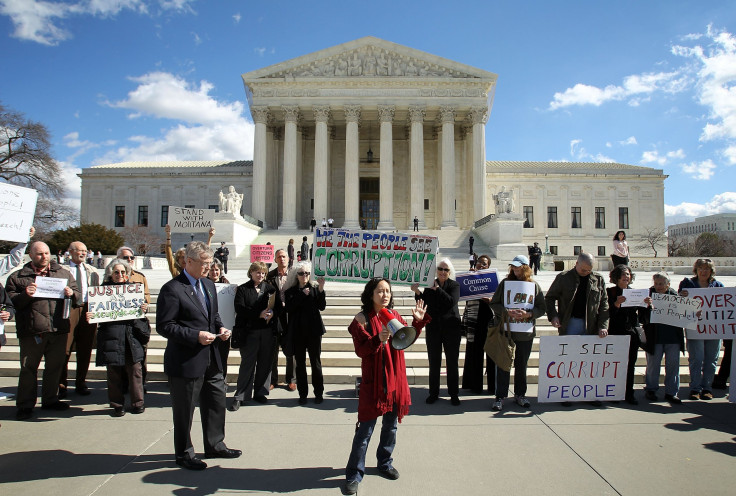Court Decides Delaware Donors Must Be Made Public When Campaign Groups Spend Over $500

The 3rd U.S. Circuit Court of Appeals has upheld a Delaware law compelling groups that spend more than $500 to reveal donors who contributed $100 or more. Delaware Safe Families (DSF), a nonprofit that distributed an "informational" voter guide in the 2014 election, was previously awarded an injunction to avoid complying with the act by a federal judge.
"It is the conduct of an organization, rather than an organization's status with the Internal Revenue Service, that determines whether it makes communications subject to" the Delaware Elections Disclosure Act, Judge Joseph Greenaway Jr. wrote in the unanimous decision.
Delaware had argued its act does not conflict with the U.S. Supreme Court's landmark finding in the Citizens United v. Federal Election Commission case. "Any possibility that the Constitution limits the reach of disclosure to express advocacy or its functional equivalent is surely repudiated by Citizens United v. FEC," Greenaway wrote.
The ruling follows a series of state measures against "dark money" through disclosure laws. Montana approved a law in April requiring groups to report how money is being spent in state political races while the Arizona Supreme Court found in the same month groups cannot claim they're educating voters to attack politicians while hiding funding sources.
Courthouse News Service reported Chief Judge Theodore McKee, a member of the three-judge panel that reversed the injunction, said the guide focused on specific issues and therefore could not be seen as a simple education tool.
"Otherwise, why not tell voters about the polar bear population? How does the voter guide not fall smack within the definition?" McKee asked in the decision handed down Thursday. "Why can't I contribute to an organization that wants to obliterate the walrus without disclosing to my neighbors that I don't like walruses?"
DSF argued the law depended on too broad a definition of "communications media," which was also rejected in the decision. "Had the Legislature limited 'electioneering communication' to media not actually utilized in Delaware elections, the disclosure requirements would fail to serve the state's interest in a well-informed electorate thereby resulting in a weaker fit between the two," Greenaway wrote. "Accordingly, we find that the media covered by the act is sufficiently tailored to Delaware's interest."
The court also decided $500 is a reasonable threshold for a state as small as Delaware. While national legislation sets the bar at $10,000 for disclosing donations of $1,000 or more, the court decided the smaller threshold is fair for Delaware, since $500 can buy a robocall campaign for an entire congressional district in the state.
© Copyright IBTimes 2025. All rights reserved.






















